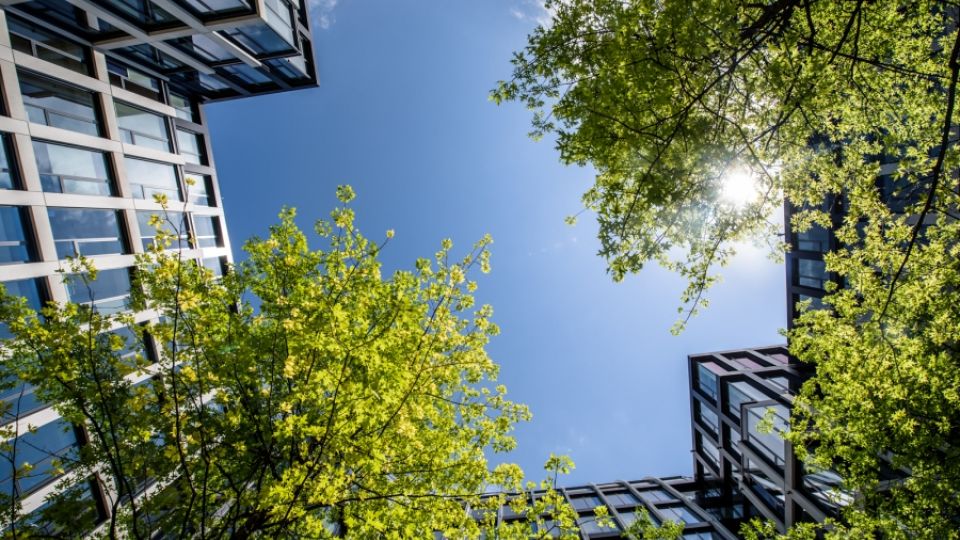As urbanization in European countries goes on, the quality of life in urban areas and the sustainability of spatial planning are becoming crucial. A conflict between private and public interests is typical, especially for bigger cities – the same struggle for public spaces and affordable housing is taking place in Prague, Belgrade, or Kyiv. On the occasion of the twentieth anniversary of the Aarhus Convention (1), (2), the non-governmental organizations draw attention to the unsustainability of prioritizing the interests of investors and developers and call on governments to better defend the right to live in a healthy environment (3).
“The loss of green and public spaces and threat to historical heritage resulting from the massive increase in private development is particularly damaging the cities of Central and Eastern Europe and the former Soviet Union. The regulations in the region are generally weaker and law enforcement worse. A deregulated housing market causes high demand for real estate, bought as an investment, which causes the unaffordability of housing for lower-income residents. Despite proclamations, local authorities are unable to secure both the social and environmental sustainability of cities, while a lack of participation on the part of the public deepens the crisis,” is how Vaclav Orcigr of Arnika, an NGO based in Prague, evaluates the situation.
The Czech capital has not been able to approve a new spatial plan since 2008. For thirteen years, residents have been opposing the approval of a document that would, in their opinion, but the city at the mercy of investors. However, because of the lack of regulation, commercial buildings are being erected year by year. The prices of housing have almost doubled in the past five years (4).
Belgrade is facing similar challenges. “The Serbian government’s fixation on capital investment caused development projects to pop up all over the city. The public opinion survey (5) shows that more than 50% of Belgrade residents agree that the city is developing according to the private interests of the powerful. The housing of some 70% of the population of Belgrade should, because of their social and economic situation, be supported by the state. But in fact, less than 1% of housing is public. At the same time, only 5% of the Serbian population buy real estate, and 84% of them pay in cash. That is frightening,” says Iva Čukić of the non-governmental organization Ministarstvo Prostora from Serbia.
Residents of Kyiv organized the largest public protest for a better environment in recent years at the beginning of October. The March for Kyiv (6) demanded a halt to illegal constructions, efficient public transport, independent district councils, clean air and water, and approval of the spatial plan.
“The quality of life index ranks Kyiv in 173rd place out of 231 cities in the world (5). One of the reasons for the poor rating is the insufficient number of green areas and rapid development of the city. The situation is exacerbated by heavy traffic jams and excessive air pollution. A surprising 94% of residents strongly disapprove of the destruction of green areas for new shopping malls or residential complexes, understanding the importance of the cooling islands (6),” explains Yegor Firsov, the leader of the NGO Office for Environment and one of the speakers of the March for Kyiv.
The representatives of the UNECE states are meeting in Geneva from 18 till 22 October to evaluate the last four-year period and decide on further steps in promoting environmental democracy in the region. The sustainable development of cities is a topic of this year’s conference.
Notes and details:
1) The Aarhus Convention, nicknamed the Convention on Environmental Democracy, entered into force on 30 October 2001. Its signatories are the countries of Europe and the former Soviet Union and the European Union as a party. Recently, Guinea-Bissau became the first party from Africa. On the basis of the example of the Aarhus Convention, the countries of Latin America recently adopted a similar Escazu Convention. The Aarhus Convention guarantees the right to environmental information, public participation in decision-making, access to justice, and protection of the defenders of the environment from persecution. More on the Aarhus Convention here.
2) Seventh Session of the Parties to the Aarhus Convention – official website.
3) The presentations from the side event on the sustainable development of cities.
4) House prices up by 19% in the EU between 2010 and 2019. Looking at the trend of house prices between 2010 and 2019, there has been a steady upwards trend since 2013, with particularly large increases between 2015 and 2019. In total, there was an increase of 19% between 2010 and 2019. There were increases in 23 Member States and decreases in three over this period. The largest increases were observed in Estonia (+96%), Hungary (+82%), Latvia (+75%), Luxembourg, and Austria (both +65%). More information.
5) More about the results of a public opinion survey on the problems of functioning and priorities for the development of Belgrade (in Serbian): Beograd raste i nastaviće, ali da li se razvija?
7) According to the Mercer Quality of Life Index, globally, Vienna tops the ranking for the tenth year running, closely followed by Zurich, the runner-up. Western Europe dominates the rankings, with Luxembourg named the safest city in the world. Prague ranks in 69th position, Belgrade 139th, and Kyiv 173rd out of 231 cities. The lowest quality of life is, in the long term, in Baghdad.
8) Sociological survey on Building in the green areas of Kyiv (Gradus, 2021).







